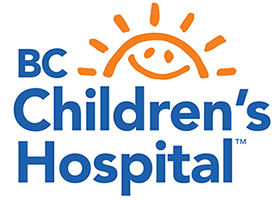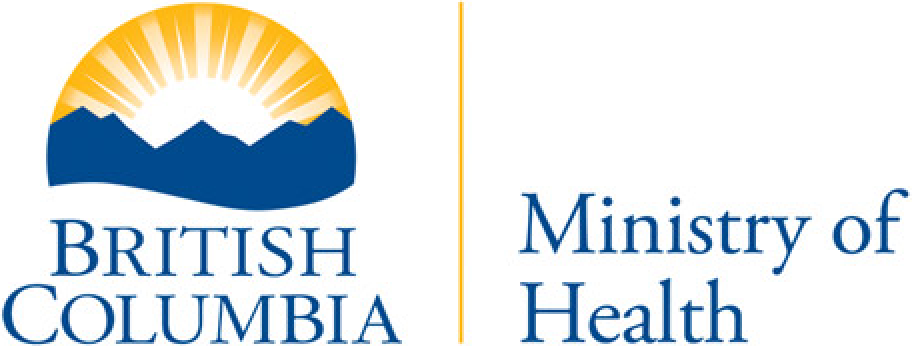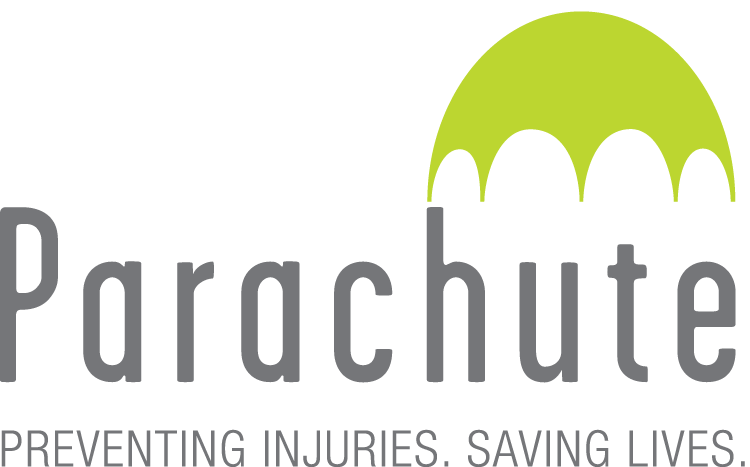About CATT
The Concussion Awareness Training Tool (CATT) is a series of online educational courses and resources addressing concussion recognition, diagnosis, treatment, management, and prevention. Good concussion management may decrease the risk of long-term health issues.
CATT was developed by Dr. Shelina Babul, Director of the BC Injury Research and Prevention Unit (BCIRPU), BC Children’s Hospital (Vancouver, Canada). It is based upon the established principles of evidence-based research and resources, including:
View a list of publications and abstracts related to CATT (PDF).
- Consensus Statement on Concussion in Sport
- Living Guideline for Concussion & Prolonged Symptoms for Adults over 18 years
- Living Guideline for Pediatric Concussion Care
- American Congress of Rehabilitation Medicine Diagnostic Criteria for Mild Traumatic Brain Injury
View a list of publications and abstracts related to CATT (PDF).
Write your awesome label here.
Research and evidence on concussions is evolving and the knowledge base is continually changing. As a result, BCIRPU staff, in collaboration with brain injury experts provincially and nationally, ensure that the tool is updated on a regular basis to provide current information, tools, and resources to support concussion recognition, diagnosis, treatment, and management.
CATT is part of the Concussion Harmonization Project, a federal initiative to increase the prevention, recognition, and treatment of concussions in Canada.
There are eight CATT online educational modules
All online educational modules are available in English and French, free-of-charge.
Partners and Collaborators

BC Injury Research and Prevention Unit
CATT is a product of the BC Injury Research and Prevention Unit (BCIRPU). Established in August 1997, the BCIRPU is located at BC Children’s Hospital in Vancouver, as a core research program within the Evidence to Innovation theme of the research institute. BCIRPU serves as a training centre, and several staff members at the Unit hold faculty appointments at The University of British Columbia. BCIRPU was established as a strategic entity, blending the need for research and evidence with best practices and the development of policies and programs to reduce injury in British Columbia, Canada. Learn more at injuryresearch.bc.ca
Partners
Collaborators

Digital Lab at BC Children's Hospital
The Digital Lab is an integrated unit of BC Children's Hospital and the University of British Columbia. The aim of the Lab is to improve health outcomes and the delivery of health services through digital innovation and technology. The design and technical development of the CATT platform was enabled through the Digital Lab, in close collaboration with BCIRPU. Learn more at digitallab.org

BC Children's Hospital
BC Children’s Hospital, a program of the Provincial Health Services Authority, provides expert care for the province’s most seriously ill or injured children, youth, and young adults, including newborns. Child and Youth Mental Health provides a diverse range of specialized and one-of-a-kind tertiary mental health and substance use services for children, adolescents, and young adults across British Columbia. For more information, visit www.bcchildrens.ca or follow on Twitter @BCChildrensHosp.

Provincial Health Services Authority (PHSA)
PHSA is a provincial health authority of British Columbia that coordinates and provides province-wide population health and specialized health services through our agencies, services, and programs. We work in partnership with the province’s five regional health authorities, the First Nations Health Authority, and the Ministry of Health to improve evidence-informed practice, health promotion and prevention services, and management of acute and chronic conditions. We provide analytical and policy support to government and health authorities to reduce the burden of illness and injury and improve the health of the population.

BC Ministry of Health
The Ministry of Health is a provincial government department responsible for British Columbia’s health system, with a mandate to guide and enhance the province’s health services to ensure British Columbians are supported in their efforts to maintain and improve their health.

Parachute
Parachute is Canada’s national charity dedicated to reducing the devastating impact of preventable injuries. Unintentional injury is the number 1 killer of Canadians aged 1 – 34 years, where one child dies every nine hours. The financial toll is staggering, with injury costing the Canadian economy $27 billion a year. Through education and advocacy, Parachute is working to save lives and create a Canada free of serious injuries. Learn more at Parachute.ca
G.F. Strong School Program
The G. F. Strong School Program is a provincial resource program which seeks to meet the educational needs of students with neurological impairments sustained through illness or injury. The goals of the program are: to offer education to students, parents, and school professionals regarding the effects of concussion on student learning; to assist with the development of Return to Learn Plans; and to develop appropriate individual academic intervention for students returning to school after an illness or injury. G.F. Strong school staff are active team members on the Adolescent Complex Concussion Clinic at G. F. Strong Rehabilitation Centre.
G.F. Strong Rehab Centre—Adolescent Complex Concussion Clinic
The Adolescent Complex Concussion Clinic, part of the Adolescent and Young Adult Outpatient Program, provides interdisciplinary assessment and intervention for adolescents 12 to 18 years old, in high school, and diagnosed with a concussion within the past 18 months. The mandate of the clinic is to provide concussion education, symptom assessment and management, and recommendations for Return to Sport and Return to School.
Supporting Survivors of Abuse and Brain Injury through Research (SOAR)
SOAR is a multidisciplinary research collaboration between The University of British Columbia-Okanagan and Kelowna Women’s Shelter that aims to study traumatic brain injury in women who have experienced intimate partner violence and abuse.
Concussion Legacy Foundation Canada
Concussion Legacy Foundation Canada’s mission is to advance the study, treatment, and prevention of the effects of brain trauma in Canadian athletes and other at-risk groups.
Child Health BC
Child Health BC, an initiative of BC Children’s Hospital, brings together policy makers, health administrators, clinicians, operational leaders, and physician leaders from across BC who together have a bold, common goal: To work together to continuously improve the health status and health outcomes of BC’s children by building an integrated and accessible system of service. Child Health BC has identified injury prevention, and more specifically concussions, as a priority area on which to focus. Child Health BC has been pleased to partner with the BCIRPU on the development and implementation of CATT.
U SPORTS
U SPORTS is the national brand for university sports in Canada. Every year, over 20,000 student-athletes and 900 coaches from 56 universities vie for 21 national championships in 12 different sports. U SPORTS also provides higher performance international opportunities for Canadian student-athletes at Winter and Summer Universiades, as well as numerous World University Championships.
Canadian Academy of Sports and Exercise Medicine (CASEM)
CASEM is an organization of physicians committed the excellence in the practice of medicine as it applies to all aspects of physical activity. Our mission is to forge a strong, collective voice for sport & exercise medicine, to be a leader in advancing the art of science in sport and exercise medicine including health promotion and disease prevention, for the benefit of all Canadians.
Canadian Athletic Therapists Association (CATA)
CATA is the certifying and governing body for Certified Athletic Therapists (ATs) practicing in Canada. Established in 1965 by a group of ATs working with professional hockey and football teams, CATA now represents over 2,600 members. We are dedicated to the advancement and growth of the Athletic Therapy profession through advocacy, education, and research.
Ontario Athletic Therapist Association (OATA)
The OATA is the professional voice and advocate for Ontario’s almost 1,000 Certified Athletic Therapists (ATs). ATs are point of injury health care professionals, certified as first responders, and well-trained in all aspects of concussion management. OATA was among the first health care professional groups working on Ontario’s Rowan’s Law and an early member of the Ontario Neurotrauma Foundation’s working group on Concussions.
Atlantic Provinces Athletic Therapists’ Association (APATA)
The APATA is a not-for-profit organization dedicated to enhancing and promoting the delivery of the highest quality of care to active individuals. The APATA, along with its national body, the Canadian Athletic Therapists’ Association (CATA), ensures that all of its members are currently in good standing and have up-to-date continuing education in the area of Athletic Therapy.
Faculty of Applied Health Sciences, Brock University
The Faculty of Applied Health Sciences at Brock University, located in the Niagara Region, delivers high quality undergraduate and graduate education and performs world-class research in a wide range of fields encompassing health, sport, recreation, kinesiology, and nursing. In these endeavours, it also partners with many community, research, and health organizations in working to enhance the health and well-being of Canadians.
University of British Columbia Division of Continuing Professional Development (UBC CPD)
UBC CPD is a division within the Faculty of Medicine dedicated to supporting physicians, health care leaders and other medical professionals across the province to improve knowledge, skills, professional performance, and ultimately optimize patient care. As an academic unit, they strive to provide health care professionals in urban and rural communities with equal opportunities for quality education in various modalities that positively impact practice change.
The University of Calgary Sport Injury Prevention Research Centre (SIPRC)
SIPRC in the Faculty of Kinesiology is one of 11 International Research Centres for the Prevention of Injury and Protection of Athlete Health supported by the International Olympic Committee. The mission of SIPRC is excellence in research, training, and knowledge translation to inform best practice and policy in the prevention of injuries and their consequences in youth sport and recreation.
SHREd Concussions
This large multi-site Canadian research study (Lead Principal Investigator Dr. Carolyn Emery PT PhD, Canada Research Chair in Concussion), funded by the National Football League’s Play Smart Play Safe Program, is focused on research informing sport-related concussion prevention in youth across 14 high risk concussion sports. In addition, SHRed Concussions will examine and inform best practice and policy across sport-related concussion detection, diagnosis, prognosis, management, and treatment for all youth participating in sport and recreation.
Middle East and North Africa Program for Advanced Injury Research (MENA PAIR)
MENA PAIR is an NIH-funded program established in a collaborative partnership between the American University of Beirut (AUB), Lebanon and Yale University, USA. The MENA PAIR aims to advance the science and practice of injury research in the MENA region, to identify, train, and recruit scientists dedicated to advancing injury research, as well as to enhance capacity at all levels of the injury research ecosystem through training and capacity building.

The Concussion Awareness Training Tool (CATT) is a series of online educational modules and resources addressing concussion recognition, diagnosis, treatment, and management. Good concussion management is pivotal to minimizing the risk of brain damage and may reduce long-term health consequences.
CATT is a product of the BC Injury Research and Prevention Unit, located on the unceded land of the Coast Salish peoples, including the Sḵwx̱wú7mesh (Squamish), Stó:lō and Səl̓ílwətaʔ/Selilwitulh (Tsleil-Waututh) and xʷməθkʷəy̓əm (Musqueam) Nations.
Courses
Medical Professionals
Coaches & Officials
Parents & Caregivers
School Professionals
Youth
Athletes
Workers & Workplaces
Women’s Support Workers
BCIRPU Office
F508 – 4480 Oak St.
Vancouver BC V6H 3V4
Canada
concussion@bcchr.ca
concussion@bcchr.ca
Developed in collaboration with




© 2026 BCIRPU. All rights reserved | Terms and Conditions
